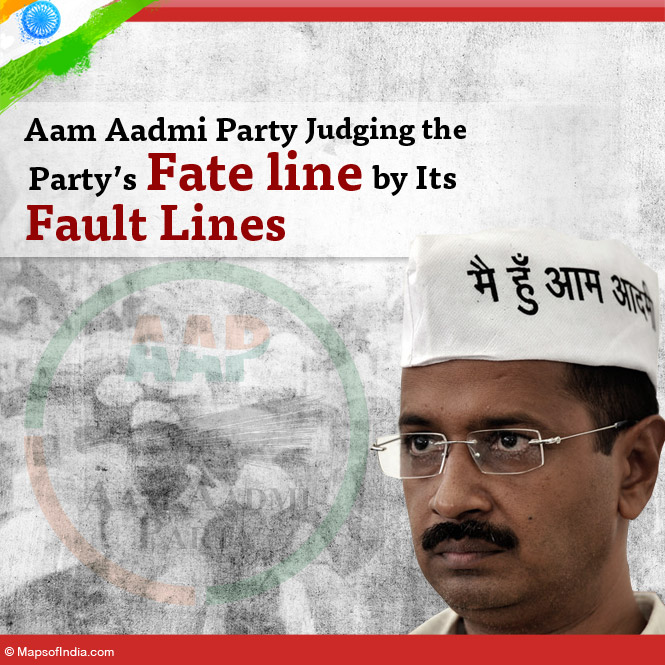When Pritish Nandy identified the fault line in the Congress party, what dawned upon me was that realisation that the crust of the Aam Aadmi Party (AAP) has also started to show similar fissures. According to Mr. Nandy, the Grand Old Party has become intolerant to constructive criticism, which has done collateral damage to the party during the 2014 Lok Sabha elections. In an almost similar accusation, one of the founding members of the AAP has openly admitted that ‘lack of inner party democracy’ has triggered dissent and disintegration within the party.
From being a beacon of hope and a harbinger of corruption-free governance, the AAP has now reduced to a non-relevant entity, devoid of public sympathy. The party that stunned Delhi with a dramatic entry, made an equally theatrical exit. It took less than two months for them to fizzle out. Discussions in the online space indicate that commoners like us were foxed by the temptation of having a political structure that’s free from red-tapism.
Did the AAP sell Utopia to us? Well, to some extent yes. Bringing the best version of the Jan Lokpal Bill; decentralisation of power; use of IT to reduce corruption in government functioning; simplify government procedures; and many more promises had graced their manifesto. They all sound so far-fetched.
Any AAP devout reading this, don’t shoot me for saying this, but a blend of arrogance and lack of foresight has become a little too evident lately. When one of the founding members of the party stepped aside because of the “perpetuation of sensationalism”, you know that there’s likely to be more skeletons in the closet. Shazia Ilmi and Captain Gopinath had been the trusted commanders all through, but now even they are perturbed by the fact that party members who offered ‘a voice of dissent and constructive criticism” were “systematically marginalised.” That’s a dangerous precedence the AAP is setting.
After securing less than 1% of the total Lok Sabha seats, a series of post-mortem reports across vernacular and English dailies pointed out a common aberration – the AAP believes in theatrics and not dialectics. It was proven only last week when Kejriwal chose police custody over bail bond to stay true to his principles. Someone had put up a very pertinent question – Does it suit Kejriwal to waste his energy on this “bail-jail imbroglio”? Shouldn’t he be spending more time with his foot soldiers and critics?
Shazia Ilmi’s decision to severe ties with the AAP could be considered as a first major rebellion against not-so-viable method of party’s functioning. It could also be interpreted that Ilmi is disappointed with the tireless attempt of the party leader to grab media attention and public sympathy by going the impulsive way. It is clear from her remarks that the party is at the mercy of a few privileged members who are blessed with decision-making authority. The whims of the high command are not helping the AAP to get a strategic direction. Only calling names won’t help the AAP in advancing its prospects unless it offers a solution that’s believable and achievable.
At this present hour, according to Ilmi, Arvind Kejriwal is keeping himself busy by shooting the messenger.






